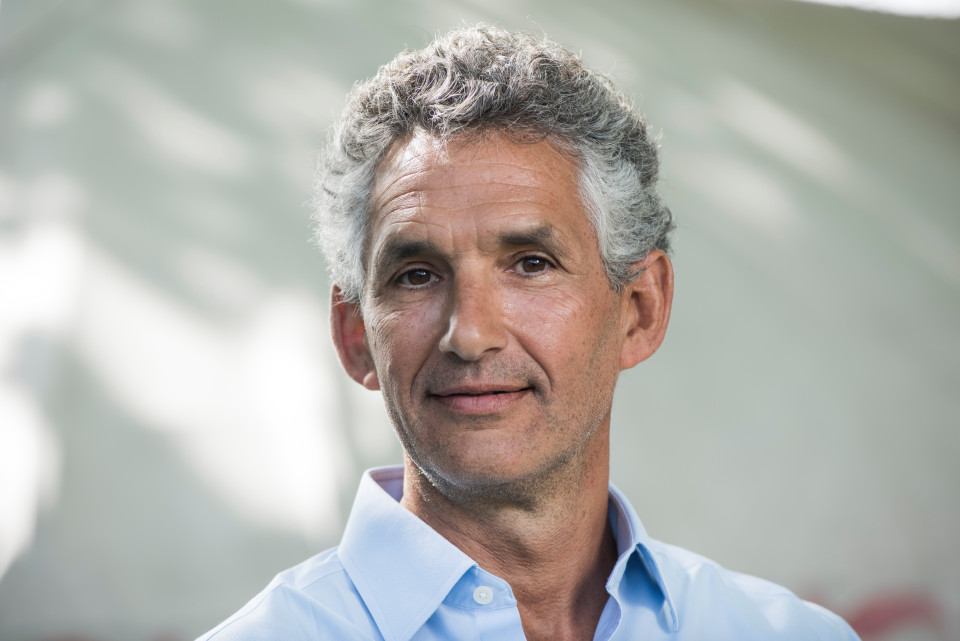Tim Spector — a Professor of Genetic Epidemiology and microbiome researcher — spent three days eating like a hunter-gatherer with the Hadza in Tanzania and dramatically changed the diversity of his gut microbiome. He wrote about his experience in a recent article for CNN, and we brought him on ReWild Yourself Podcast to share his story and explain the importance of gut diversity for robust health.
Tim is also the Founder and Director of the TwinsUK Registry at Kings College, London — the richest collection of genotypic and phenotypic information worldwide — and has recently been elected to the prestigious Fellowship of the Academy of Medical Sciences. He has published over 800 research articles and is ranked as being in the top 1% of the world’s most cited scientists by Thomson-Reuters. He held a prestigious European Research Council senior investigator award in epigenetics and is a NIHR Senior Investigator. His current work focuses on omics and the microbiome, and he directs the crowdfunded British Gut microbiome project. He is a prolific writer with several popular science books and a regular blog, focusing on genetics, epigenetics and most recently, microbiome and diet.
In this interview, Tim brings us up to speed on our current scientific understanding of the microbiome, what his research has uncovered and how we can apply this knowledge to our own diet and lifestyle to achieve a healthy microbiome. Ultimately, Tim has found that the key to a diverse and healthy gut is to ReWild yourself — eating a species-rich diet of foraged foods and interacting with the natural world (translation: exposure to plentiful and diverse microbes). Tune into our conversation for an in-depth review of the trillions of bacteria that inhabit your human animal, and learn how you can cultivate a healthy, robust community of beneficial gut bacteria.
EPISODE BREAKDOWN:
- Show Introduction:
- SurThrival NEW product teaser + upcoming Rather Hunt Gather clothing
- Hunt + Gather updates: Feral apples, wild cranberries, butternut, bear hunting, chicken of the woods mushroom and offshore fishing on the Bunny Clark
- Q&A: Barefoot boot recommendations
- Introducing Professor Tim Spector
- Defining omics
- Studying twins and epigenetics
- What led Tim to his study of diet
- Researching the healthiest diet
- The largest endocrine organ in the body: the microbiome
- Microbiome and metabolic individuality
- What is our current understanding of the microbiome?
- The effects of antibiotics on the microbiome
- Recounting Tim’s time spent living and eating with the Hadza
- Thoughts on the microbiome of the ReWilder
- General guidelines for a healthy microbiome
- Tim’s prognosis for the future of the human species
Subscribe to ReWild Yourself Podcast
Like what you heard? Head over to iTunes now, and leave us a rating and review. Want to talk more about this episode, suggest a guest, or offer feedback? Join the conversation on the Daniel Vitalis Facebook page.
ReWild Yourself Podcast is brought to you by:
RESOURCES FROM THIS SHOW:
- Vivobarefoot Men's Tracker
- Lems Shoes
- CNN article: What a hunter-gatherer diet does to the body in just three days
- Identically Different: Tim Spector at TEDxKingsCollegeLondon
- Study: A twin approach to unraveling epigenetics
- Fecal Microbiota Transplant
- Earth Microbiome Project
- Human Food Project
- American Gut Study
- British Gut Study
- Missing Microbes: How the Overuse of Antibiotics Is Fueling Our Modern Plagues by Martin J. Blaser MD
- Jeff Leach
- Rewild by Jeff Leach
- Articles on the microbiome by Jeff Leach:
- Trying the Hadza hunter-gatherer berry and porcupine diet
- Baobab, Adansonia
- Hyrax
- Crested porcupine, Hystrix cristata
- Evolution of Diet - The Hadza of Tanzania
- Is The Secret To A Healthier Microbiome Hidden In The Hadza Diet?
- Catching Fire: How Cooking Made Us Human by Richard Wrangham
- How Gut Bacteria Help Make Us Fat and Thin
- Tim Spector's Top Ten List of Gut-friendly Foods
Meet Tim
Tim Spector is a Professor of Genetic Epidemiology and Director of the TwinsUK Registry at Kings College, London and has recently been elected to the prestigious Fellowship of the Academy of Medical Sciences. He trained originally in rheumatology and epidemiology. In 1992 he moved into genetic epidemiology and founded the UK Twins Registry, of 13,000 twins, which is the richest collection of genotypic and phenotypic information worldwide. He is past President of the International Society of Twin Studies, directs the European Twin Registry Consortium (Discotwin) and collaborates with over 120 centres worldwide. He has demonstrated the genetic basis of a wide range of common complex traits, many previously thought to be mainly due to ageing and environment. Through genetic association studies (GWAS), his group have found over 500 novel gene loci in over 50 disease areas. He has published over 800 research articles and is ranked as being in the top 1% of the world’s most cited scientists by Thomson-Reuters. He held a prestigious European Research Council senior investigator award in epigenetics and is a NIHR Senior Investigator. His current work focuses on omics and the microbiome and directs the crowdfunded British Gut microbiome project. He is a prolific writer with several popular science books and a regular blog, focusing on genetics, epigenetics and most recently microbiome and diet (The Diet Myth). He is in demand as a public speaker and features regularly in the media.








